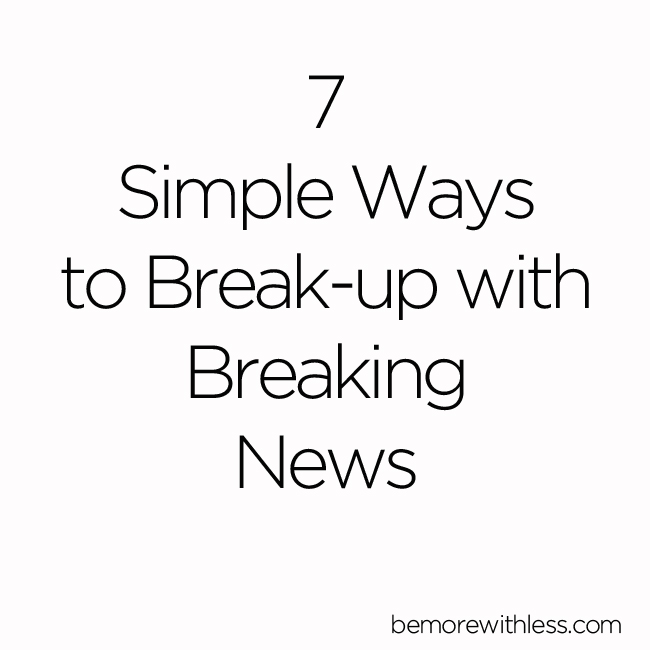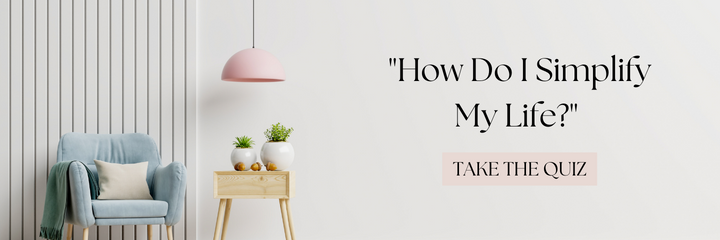If you wake up and check email while you watch the news, don’t be surprised if you feel frazzled and stressed by noon. I remember being glued to the TV, watching national or local stories unfold before my eyes. Sometimes that took hours and other times, days or longer. I usually felt broken after breaking news. The big stories of loss and suffering seemed to much to absorb and the small local stories of robberies, assaults, fires and floods, scams and schemes left me feeling depleted,hopeless and helpless.
There is so much good happening in the world, but it’s not as exciting as the bad stuff. The focus of news and big, breaking stories could certainly explain sleepless nights, stress and anxiety. And it’s not just breaking news. The regular nightly news will break you too. It will break your heart and your spirit. The onslaught of information about broken people and traumatic experiences can be more hurtful than helpful.
While I don’t discount the importance of being informed, I think we can be over informed.
When you take a break from breaking news you can …
- sleep better
- be more optimistic
- laugh more freely
- engage in meaningful relationships
- reduce fear and stress
This story from Slate.com offers these great suggestions for breaking up with breaking news, “When you first hear about a big story in progress, run to your television. Make sure it’s securely turned off.
Next, pull out your phone, delete your Twitter app, shut off your email, and perhaps cancel your service plan. Unplug your PC.
Now go outside and take a walk for an hour or two. Maybe find a park and sit on a bench, reading an old novel. Winter is just half a year away—have you started cleaning out your rain gutters? This might be a good time to start. Whatever you do, remember to stay hydrated. Have a sensible dinner. Get a good night’s rest. In the morning, don’t rush out of bed. Take in the birdsong. Brew a pot of coffee.
Finally, load up your favorite newspaper’s home page. Spend about 10 minutes reading a couple of in-depth news stories about the events of the day. And that’s it: You’ve now caught up with all your friends who spent the past day and a half going out of their minds following cable and Twitter. In fact, you’re now better informed than they are, because during your self-imposed exile from the news, you didn’t stumble into the many cul-de-sacs and dark alleys of misinformation that consumed their lives. You’re less frazzled, better rested, and your rain gutters are clear.”
- Take a regular digital sabbatical. Once a day or for a full day every week, unplug. Disconnect so you can fully connect to what matters most in your life.
- Change the channel. If you listen to news in your car, switch to music or silence.
- Disconnect from social media sites like Twitter and Facebook. This is often where the breaking news breaks. Visit your favorite social media sites but don’t stay there all day or check in multiple times a day. Include them in your daily or weekly digital sabbatical.
- Take a walk. Go outside and experience all of the beauty right outside your front door. Leave your phone at home.
- Read. Get lost in a good book or read a classic
before you see the movie.
- Create and support good news. When you aren’t lost in bad, breaking news, you can create new projects and opportunities to help people and support people who are sharing good news.
- Be uplifting. Spend time with people who lift you up and then lift them right back.
While these simple ways to take a break from breaking news will help, a self-imposed media fast will demonstrate the real effects of the news on your physical and emotional health. Declare a 30 day media fast. You’ll still get a steady stream of information from friends and family, but without the drama and special effects of hyped up news stories. After 30 days, you will likely feel happier, less distracted and more relaxed.
Today I get my daily headlines from The Skimm. Short and sweet, but with more information available if I want to go there. Usually, I don’t.


